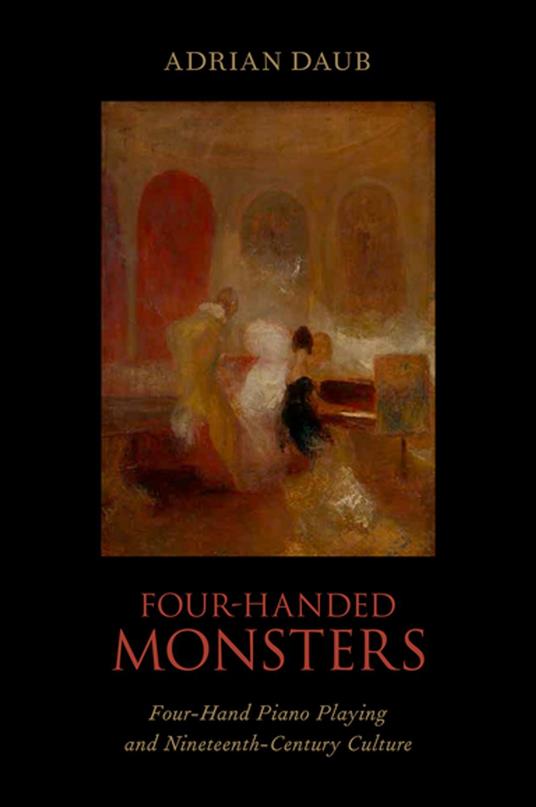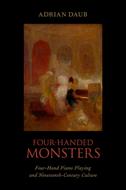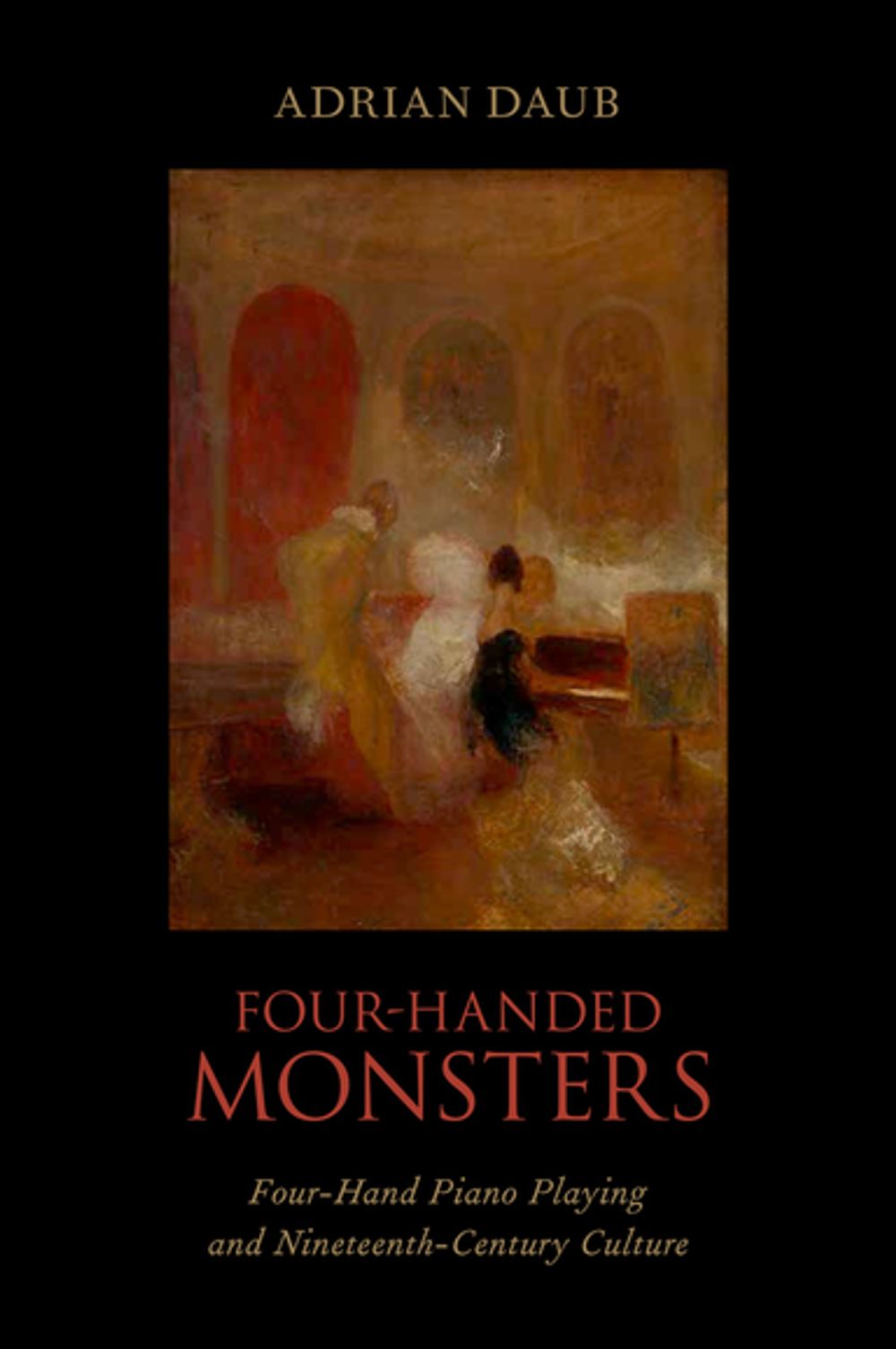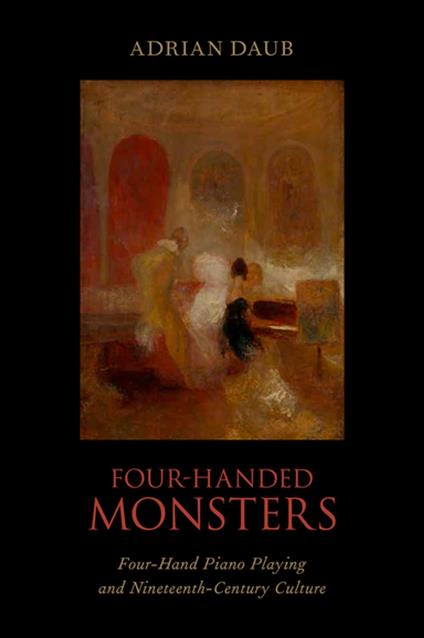Four-Handed Monsters
In the course of the nineteenth century, four-hand piano playing emerged across Europe as a popular pastime of the well-heeled classes and of those looking to join them. Nary a canonic work of classical music that was not set for piano duo, nary a house that could afford not to invest in them. Duets echoed from the student bedsit to Buckingham Palace, resounded in schools and in hundreds of thousands of bourgeois parlors. Like no other musical phenomenon, it could cross national, social, and economic boundaries, bringing together poor students with the daughters of the bourgeoisie, crowned heads with penniless virtuosi, and the nineteenth century often regarded it with extreme suspicion for that very reason. Four-hand piano playing was often understood as a socially acceptable way of flirting, a flurry of hands that made touching, often of men and women, not just acceptable but necessary. But it also became something far more serious than that, a central institution of the home, mediating between inside and outside, family and society, labor and leisure, nature and nurture. And writers, composers, musicians, philosophers, journalists, pamphleteers and painters took note: in the art, literature, and philosophy of the age, four-hand playing emerged as a common motif, something that allowed them to interrogate the very nature of the self, the family, the community and the state. In the four hands rushing up and down the same keyboard the nineteenth century espied, or thought to espy, an astonishing array of things. Four-Handed Monsters tells not only the story of that practice, but also the story of the astonishing array of things the nineteenth century read into it.
-
Autore:
-
Anno edizione:2016
-
Editore:
-
Formato:
-
Testo in en
Formato:
Gli eBook venduti da Feltrinelli.it sono in formato ePub e possono essere protetti da Adobe DRM. In caso di download di un file protetto da DRM si otterrà un file in formato .acs, (Adobe Content Server Message), che dovrà essere aperto tramite Adobe Digital Editions e autorizzato tramite un account Adobe, prima di poter essere letto su pc o trasferito su dispositivi compatibili.
Cloud:
Gli eBook venduti da Feltrinelli.it sono sincronizzati automaticamente su tutti i client di lettura Kobo successivamente all’acquisto. Grazie al Cloud Kobo i progressi di lettura, le note, le evidenziazioni vengono salvati e sincronizzati automaticamente su tutti i dispositivi e le APP di lettura Kobo utilizzati per la lettura.
Clicca qui per sapere come scaricare gli ebook utilizzando un pc con sistema operativo Windows



